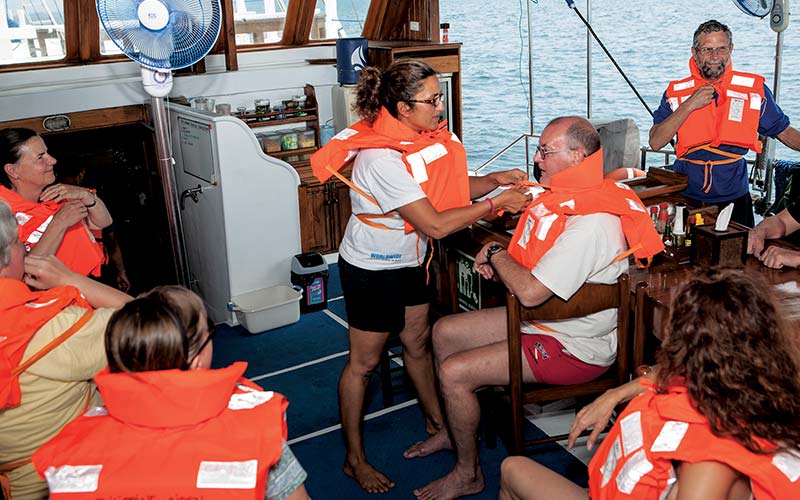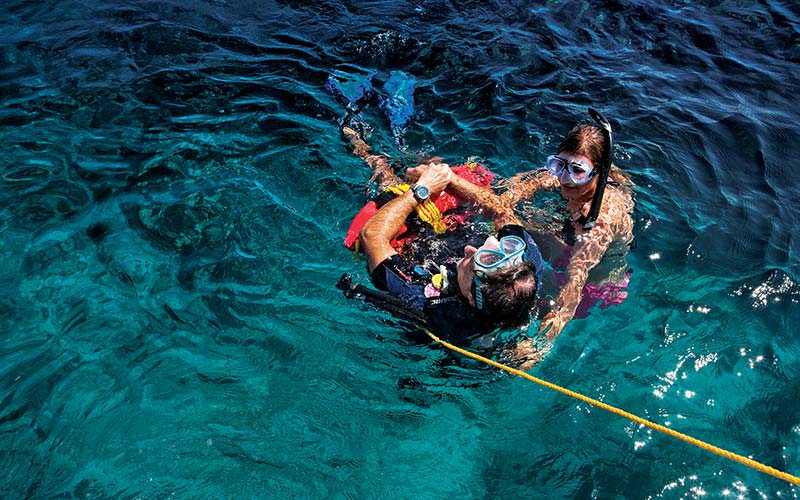When I started diving 54 years ago, the only other divers I encountered were fellow “water rats.” We loved being on, in and under the water. Learning to scuba dive was just a way for us to extend our time beneath the surface. Today, many water-rat scuba divers find dive operators too controlling and restrictive. To them I say, “Don’t blame the dive operator.”
Dive operators, trip organizers, instructors and divemasters all face the reality that many divers today do not necessarily have a natural affinity to water or innate water skills. Today many people come to diving the same way they come to skiing, skydiving or a long list of other pursuits. They are occasional or opportunistic divers who pick vacation destinations that “may also have diving.” They like diving, but they don’t necessarily love it to the degree that they invest the effort and in-water time required to master it. Herein lies the problem.

If today’s divers are less skilled and experienced than divers of decades past, then dive professionals have to provide more support and guidance — or, depending on how you look at it, controls and restrictions. Some operators attempt to divide divers into groups based on experience or training level, but divers’ certification cards cannot convey the quality of their skills or experience. And not all dive boats have the luxury of a large enough group of divers and dive staff to allow for multiple groups.
So dive professionals must watch for inexperience, signaled by improper placement of the regulator first stage on the tank valve, inadvertent trapping of the strap that secures the tank to the boat under the hoses or BCD and questions such as, “How much weight do I need?” Many operators today rely on a checkout dive or some type of in-water assessment to determine divers’ abilities and comfort levels.
When I am on a dive boat and a relatively new diver asks me how I can dive for an hour and return to the boat with 1,300 psi in my tank, I tell him that I am comfortable and relaxed in the water, I consciously conserve energy, and I have been diving for a long, long time. I also suggest that he watch how the divemaster moves and consider taking a buoyancy class or two or three.
Experience is Not a License to Break Safety Rules
New divers are not the only ones who get into trouble. In 1992 I wrote a research paper about a very troubled diving season that occurred the previous year in the northeastern U.S. We lost 11 very experienced technical wreck divers that season. Each diver lost his life as a result of making poor decisions before or during a wreck dive. Each had the skill and experience to know what he should have done but chose to ignore his training.

Two common traits I found in each diver were lack of impulse control (failure to resist temptations or urges) and lack of mortal fear (failure to appreciate the risk of death). Do you text and drive? If you do, you lack impulse control and mortal fear. Divers who possess these traits pose risks for dive operators (and their buddies and themselves) regardless of how much experience they have or how comfortable in the water they are.
What Can Dive Operators Do?
Most dive operations offer basic and advanced certification classes as well as training in basic and advanced buoyancy skills. In my experience the divers who most need these classes are the ones who are least likely to take them. Dive staff may need to find better ways of enticing divers to spend the time and money to improve their diving skills. I have been somewhat successful at inspiring divers to do that by hinting to them that they will get better air consumption, feel less tired after a dive, save the reef from accidental destruction and be a better dive buddy.
Like practicing safe diving, promoting safe diving takes effort. The more we can inspire divers to think about improving their skills, the safer we will all be. You never know — if we are successful we may find operators less inclined toward restrictive and controlling dive plans and never again feel the need to blame the dive operator.
© Alert Diver — Q2 Spring 2015